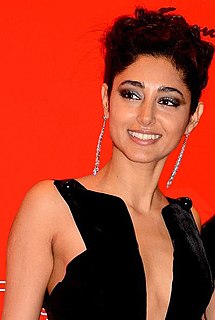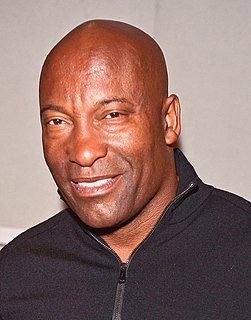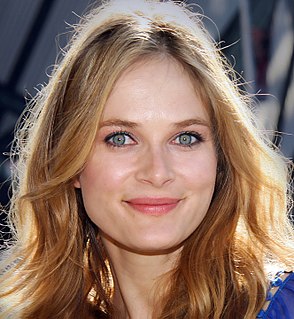A Quote by Mira Nair
We all know the power of film; we all know there's almost nothing more powerful than to see people on film that look and talk like you, like we do.
Related Quotes
For me, as a film goer, I like nothing more than to sit in the cinema, have the lights go down and not know what I'm about to see or unfold on-screen. Every time we go to make a film, we do everything we can to try to systematise things so we're able to make the film in private, so that when it's finished it's up to the audience to make of it what they will.
You know, in an ideal world, people would just be intrigued and go and see a film without knowing anything about it, because that's where you're going to have the most experience of a film, the biggest, the most revelation of a film. But at the same time, I think there are benefits of having seen a trailer where you actually look forward to seeing moments in a film knowing that they're coming up. I don't know which is better.
It used to annoy and frustrate me to have to come in and audition. I would say to my agents, 'Haven't they seen this film and this film and this film? They know what I look like... They must.' Until I directed an episode of 'Roswell.' And all of a sudden, I realized why that was such an important thing.
All of my plays have puzzled some people, and I'm happy to say delighted a few, but a lot of people have just not seen how quite to look at them. And this film... if you like my writing, you'll like this film. If you don't, you won't like the film. It's pretty faithful to - it's a pretty uncompromising presentation of my way of seeing things, I suppose.
Where the Truth Lies rating has a lot more to do with the political climate in America today than it does with the film. It wouldn't have had this rating five years ago. There's nothing graphic in this film on screen; you can look at it, but you won't be able to see it, it's not there. There's nothing graphic sexually that's not about the story telling.
I remember, the first time I saw a [Andrei] Tarkovsky film, I was shocked by it. I didn't know what to do. I was fascinated, because suddenly I realized that film could have so many more layers to it than what I had imagined before. Then others, like Kurosawa and Fellini, were like a new discovery for me, another country.
A war film can be propaganda and they're very valuable as propaganda, as we realized in Britain in the Second World War. Film as propaganda is a very valuable tool. It can also demonize, which is the dangerous side of a war film as propaganda. But there are war films that are not propaganda. It's just saying 'This is what it's like.' For 99 percent of us we don't know what it's like. We have no idea. So to reveal that to the audience is powerful.




































